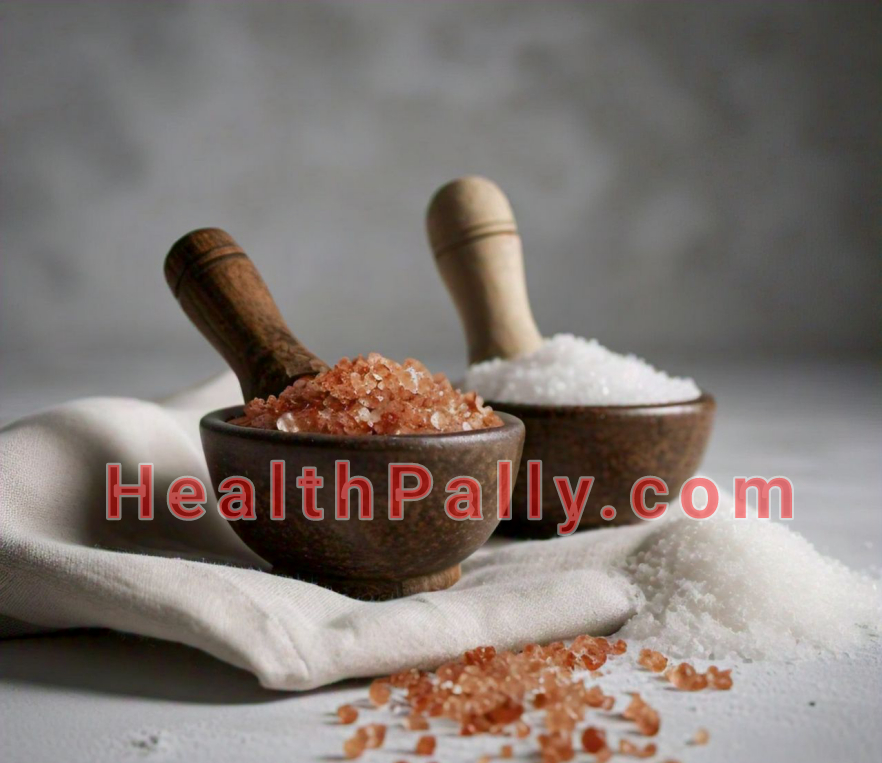A study of 3000 hypertensive subjects showed 430% increase in myocardial infarction (heart attack) in the group with the lowest salt intake compared to the group with the highest salt intake, Dr. David Browstein, MD
Unrefined Salt and Food digestion
Salt is necessary in the generation and functions of digestive fluids in the body. Without salt, good digestion is virtually impossible.
Each human body cell is usually bathed in saline water solution from time to time.
if it’s altered or not attaining the required level, that is, the amount of saline water is not sufficient, it causes dehydration of the body, says Dr. N.Walker, PhD
 Unrefined Salt and Diabetes
Unrefined Salt and Diabetes
Adequate salt intake is vital for diabetics because it is impossible to control blood sugar in a salt deficient state.
Why? Low-salt diets elevate fasting insulin and causes insulin resistance which makes type 2 diabetes intractable.
Insulin resistance is also associated with obesity, cancer and cardiovascular disease.
Therefore, unrefined salt is a necessity when treating any condition associated with elevated insulin levels. Dr. David Brownstein, MD.
A clear proof of salt’s involvement in the cause of diabetes is the fact that only horses, cattle and dogs do have diabetes among animals.
Why? Refined salt is given to horses and cattle-mixes in their fodder while dogs obtain salt in remnant of human foods given to them.
Organic Salt and hypertension
About two-thirds of hypertensive patients are deficient in salt. A study by Dr. John H. Large, MD and Dr. mark S.
Pecker, MD at Hypertensive centre at Cornell Medical Centre, USA showed that high blood pressure lies not solely in salt intake but in an overactive hormone system.
According to researchers, when this system is overactive, rennin (protein digesting enzyme released by the kidneys acting to raise blood pressure) levels are excessively high, indicating a physiological need for unrefined salt.
Conversely, the study indicated that low rennin occurs in about one third of hypertensive people and revealed salt excess.
Salt and Sickness
Every healthy person needs adequate intake of unrefined salt. In other words, people who do not like salt in their diet are sick.
Aversion to salt is often caused by too much sodium chloride attached to the organs, muscles and tissue from intake of refined table salt years back.
In fact, one symptom of disease in Traditional Chinese of Medicine is an aversion to salt.
Benefits of Unrefined Salt over Refined Salt
Human body is designed to function optimally with adequate minerals and salt intake.
Normal sodium level is 141-145 mm mol/L. While lower level indicates salt deficiency, low-salt diets increase insulin and, elevated insulin levels have been associated with diabetes, cancer, obesity and polycystic ovaries.
Unrefined sea salt acts as strong natural antihistamine that helps clear up congested- mucuc plugs and phlegm from the lungs.
Unrefined sea salt stabilises irregular heartbeats and regulates endocrine system.
Chemical additives in refined table salt include iodine, aluminum and fluoride, which are highly toxic.
Refined table salt leads to acidity in the body, whereas unrefined sea salt is rich in minerals, which promote a healthy pH.